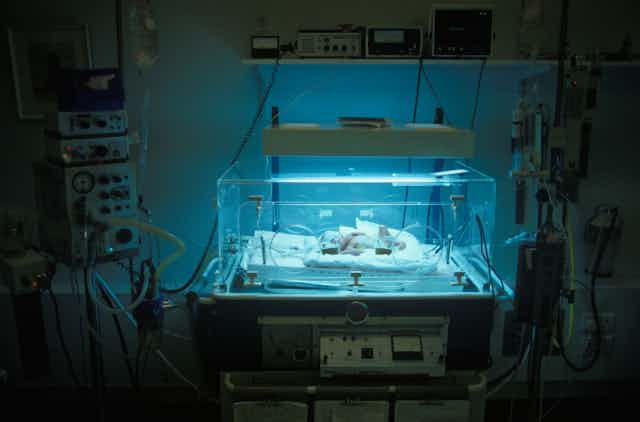The facts of the Lucy Letby case are harrowing. A nurse has been convicted of murdering seven of her newborn patients and attempting to murder six others. And there are suggestions that managers in the healthcare system failed to heed the concerns raised by some of Letby’s colleagues, meaning that opportunities to stop the killings and injuries may have been missed.
Everyone who has heard any of the reporting of the case will be shocked and distressed by it, but new parents, and people who are soon to become parents, may be particularly alarmed by what happened at the Countess of Chester Hospital.
Mercifully, cases like this one are extremely rare. Although new parents are very unlikely to encounter someone who deliberately tries to harm their child, parents trusting their baby to the care of a neonatal unit must know what positive things they are entitled to expect. In other words, what does good practice look like?
Good practice
When treating young babies – or anyone who cannot make medical decisions for themselves – healthcare professionals have a legal and ethical duty to act in the best interests of the child.
Although the child is the patient and rightly the focus of the professionals’ concern, professionals acknowledge that parents are usually the best judges of what is in their child’s best interests. For this reason, medics treating very young children must consult with parents and keep them informed about their child’s condition and treatment – seeking the parents’ consent for any decisions about what to do.
It is also understood that fostering closeness between parents and their children - even in the highly unusual circumstances of a neonatal unit - is crucial for the child’s wellbeing and development.

As such, a healthy neonatal care environment is one in which parents are made to feel welcome and involved - where they are encouraged to spend as much time as possible with their child, and to hold, feed and bathe them wherever possible.
Parents should be given every opportunity to develop a close bond with their child, and staff should respect that bond by recognising the value of parental intuition, listening when parents express concerns about their child, taking the time to give information that parents ask for and explaining anything that a parent is anxious or confused about.
Where holding or otherwise caring for a baby is impossible because of the kind of care that the baby is receiving, this should be explained sensitively and, where appropriate, alternatives offered.
For example, where parents can’t hold a child in their arms, “comfort holding” - placing hands on the child’s head and feet while the child remains in their cot - may be possible. Where a decision about a child’s treatment needs to be taken urgently and it is not possible to contact the parents to consult with them and get their consent, this should be fully explained at the earliest opportunity and the parents involved at that point.
Whistleblowing
What about when the unthinkable does happen and someone trusted to care for a vulnerable young child seeks to harm them? Although one alarming feature of the Letby case is the claim that the concerns raised by Letby’s colleagues were dismissed or ignored by managers, we should take note of the fact that such concerns existed in the first place.
When something is seriously wrong in a healthcare setting, professionals notice, and at least some of them will be prepared to whistleblow. In the aftermath of this upsetting case, we can expect there to be a thorough investigation, and a commitment that no NHS ward will ever be a hostile environment for whistleblowers.
The circumstances that enabled so many of the NHS’s most vulnerable patients to be murdered and injured should be even rarer from now on.
When a child is born requiring specialist neonatal care, it’s always a frightening and vulnerable time for parents and families. Amid this anguish, parents are entitled to be respected and supported and to be treated with care themselves.
In the vast majority of cases, staff caring for unwell newborns will do their best to provide expert and compassionate care to the children they look after, and will encourage parents to be as involved as their child’s condition allows.

